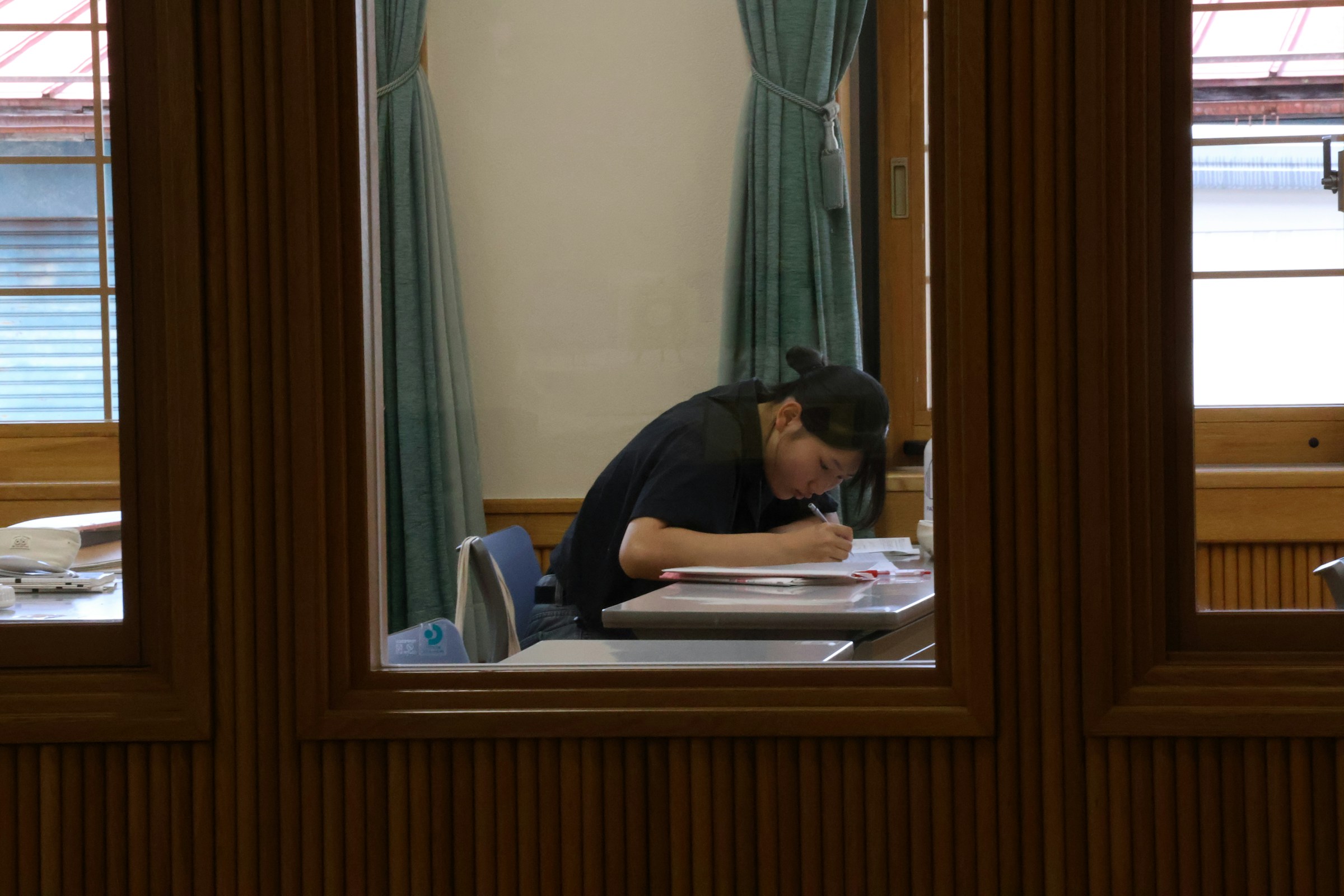Choosing which GCSEs to take can feel like standing at a crossroads, especially when worries about workload and final grades hang over you. From maths and physics to languages and history, some courses have a reputation as the Hardest GCSE subjects due to complex concepts, heavy coursework, and tough exam papers.
Which ones are genuinely hardest for most students, and which become hard because of your personal skills or the exam board? This guide offers clear, practical insights into exam difficulty, subject content, revision strategies, and study plans, enabling you to select and prepare with confidence.
Ucademy's online tutoring UK offers targeted support, pairing you with expert tutors who break down tricky topics, build revision timetables, and sharpen exam technique so you feel ready on exam day.
Top 10 Hardest GCSE Subjects

GCSE subjects vary widely in difficulty, depending on factors such as content scope, required skills, and assessment methods. Based on extensive research, including data from Ofqual, student feedback, and educator insights, the following list highlights the hardest GCSE subjects. Understanding these challenges can help students better prepare and achieve success.
1. Mathematics
Mathematics consistently ranks as the most difficult GCSE subject for many students. This difficulty arises from the subject's extensive curriculum, which includes algebra, geometry, statistics, and probability. Success in GCSE Maths requires strong analytical thinking and the ability to solve various types of problems logically and effectively.
In 2024, over 770,000 students took this exam, but the pass rate was only 62.2%, underscoring its difficulty. Only 3.4% achieved the highest grade of 9. The nature of Maths means that rote learning is insufficient; students must truly understand concepts and apply problem-solving techniques under exam conditions.
One expert tutor points out that GCSE Maths demands a blend of patience, perseverance, and a solid grasp of foundational topics. Students often improve significantly with dedicated tutoring that focuses on both conceptual clarity and exam strategies. For those who master these skills, GCSE Maths can be rewarding and open doors to numerous academic and career opportunities.
2. Art & Design (3D Design)
Unlike more theoretical subjects, GCSE Art & Design (3D Design) requires a unique fusion of creativity and technical skills. Students must develop original design concepts and then execute them using a variety of materials and techniques, striking a balance between aesthetics and practical craftsmanship.
In 2024, about 8,950 students took this subject, with a pass rate of 61.5% and just 2.9% attaining the top grade 9, reflecting the subject's demanding nature. Success here is not only about artistic flair but also involves mastering three-dimensional principles and project management.
The challenges in 3D Design stem from the need to think spatially and use tools and materials confidently while maintaining an innovative vision. Students often find this GCSE difficult because it requires consistent effort throughout the course, from initial sketches to the final piece, alongside critical reflection and evaluation.
Many students benefit from expert guidance to navigate the complex steps involved in completing projects and developing their unique style. This subject is particularly valued for those aiming for careers in creative industries where both imagination and precision are essential.
3. English Language
GCSE English Language is a foundational subject that challenges students across several core skills: reading, writing, speaking, and listening. Unlike subjects that focus mainly on memorisation, this GCSE demands precision in language use, clarity of expression, and the ability to analyse and interpret varied texts.
In 2024, around 735,000 students took this exam, with a pass rate of 65% and only 2.7% reaching the top grade of 9. The curriculum covers comprehension of both fiction and non-fiction texts, creative writing tasks, essay writing, and spoken language assessments.
Many students find this subject challenging because it requires a broad range of skills. They must not only understand nuanced language but also compose structured, persuasive, and creative pieces that convey their ideas effectively. Furthermore, the spoken language element requires confidence and clear communication skills that are not always easy to develop.
Success in GCSE English Language usually requires consistent reading, varied writing practice, and feedback from experienced tutors. Mastering this subject equips you with vital communication skills essential for both further education and everyday life.
4. Citizenship Studies
GCSE Citizenship Studies equips students with a deep understanding of their role within society, including responsibilities, rights, and political awareness. This subject encompasses a broad range of topics, including government structures, the justice system, the role of media, and community engagement.
In 2024, 22,100 students took this subject, with a pass rate of 66.8% and 2.7% earned a grade 9, reflecting the complex content. The course demands critical thinking about current affairs, ethical considerations, and the ability to evaluate different societal perspectives.
Students often find Citizenship Studies hard because it requires them to engage deeply with contemporary issues, grasp intricate political systems, and understand both theoretical and practical aspects of law and governance. Memorisation alone is insufficient; students must analyse and form reasoned arguments.
Tutoring can be invaluable, helping students break down complex topics, understand political concepts, and develop practical exam-writing skills. This subject promotes active citizenship and can influence students’ choices in future studies or careers related to law, politics, or social work.
5. Geography
GCSE Geography stands out as a demanding subject due to its combination of physical and human geography, alongside essential geographical skills. Students engage with topics such as natural landscapes, climate change, urbanisation, population trends, and economic development.
In 2024, approximately 282,300 students took Geography, with a pass rate of 65.5%. Additionally, 5% achieved the highest grade of 9. This mix of content requires students to memorise facts, understand complex processes, and apply this knowledge to real-world situations.
One major challenge is mastering geographical skills such as map reading, data interpretation, and fieldwork analysis, which are integral to the subject. Students must develop analytical thinking to evaluate environmental and human interactions critically.
Many find that success in Geography comes from active engagement with current global issues and continuous practice of analytical and writing skills. Expert tutoring in Geography often helps students grasp complex concepts and enhances their exam technique.
6. Design and Technology (D&T)
GCSE Design and Technology blends creativity with technical expertise, making it an especially demanding subject. It covers diverse areas, including product design, textiles, electronics, and food technology, encouraging both practical skills and theoretical knowledge.
In 2024, 79,500 students sat for D&T, with a pass rate of 65.2% and 4.4% gained grade 9. The course requires students to research, design, develop prototypes, and evaluate their work, which involves project management and critical thinking to solve problems.
The difficulty in D&T lies in juggling multiple components: understanding materials and manufacturing processes, applying design principles, and meeting precise specifications in practical tasks. This subject appeals to students who are both inventive and technically minded but demands sustained effort.
Students who aim to excel often benefit from individual guidance to improve their design ideas and practical skills. Given the subject’s evolving nature, it prepares learners well for careers in engineering, technology, and creative industries.
7. History
GCSE History challenges students to explore complex historical events, themes, and figures across British, European, and world history. This subject demands both extensive memorisation and the ability to analyse sources and construct well-reasoned arguments critically.
In 2024, approximately 296,000 students took this exam, with a pass rate of 64.1%. Notably, 5.5% achieved the highest grade of 9. Students must grasp chronological timelines while understanding cause and effect, as well as the significance of events within historical contexts.
The difficulty lies in interpreting various types of historical evidence and writing analytical essays that strike a balance between narrative and evaluation. Many students find it hard to synthesise detailed information under timed exam conditions.
Tutors specializing in History can significantly boost student performance by helping with source analysis and essay structure. Despite its challenges, History develops critical thinking and insight into human societies, making it invaluable in many academic and career paths.
8. Psychology
GCSE Psychology offers students an introduction to the scientific study of human behaviour and mental processes. It covers theories, research studies, and practical applications relating to cognition, development, and societal impacts on behaviour.
In 2024, approximately 18,300 students took this subject, achieving a 67% pass rate and 4.5% securing a grade 9. The curriculum’s complexity arises from the need to understand abstract psychological concepts and apply them critically.
Students who excel must master a range of learning styles, from memorising research studies to interpreting experimental findings and evaluating ethical considerations. Psychology challenges those new to science by combining theory with practical evaluation.
Many find tutoring beneficial for breaking down complex theories and developing skills in accurately applying knowledge to exam questions. This subject is especially valuable for those interested in careers in health, education, or social sciences.
Type CONTINUE to proceed with the final two subjects. Here are the final two GCSE subjects completed with detailed explanations:
9. Business Studies
GCSE Business Studies is renowned for its rigorous curriculum, which introduces students to the fundamentals of commerce, enterprise, marketing, finance, and economics. The subject explores how businesses operate and make strategic decisions in a competitive environment.
In 2024, approximately 115,000 students took Business Studies, with a pass rate of 67.3% and 3.8% achieving grade 9. The subject challenges students to apply theoretical knowledge to practical business scenarios, often requiring critical thinking and problem-solving skills.
What makes Business Studies challenging is the need to interpret data, forecast financial outcomes, and understand economic principles, while also developing analytical responses to case studies. Students must also grasp the impact of ethical and social factors on business decisions.
Many succeed by using real-world examples to supplement their learning and benefit significantly from tutoring that focuses on exam technique and concept application. Business Studies provides a strong foundation for careers in management, finance, and entrepreneurship.
10. English Literature
GCSE English Literature demands students to analyse prose, poetry, and drama across different periods and genres. It requires deep engagement with texts to interpret themes, character development, context, and literary techniques.
In 2024, approximately 600,000 students took this exam, resulting in a relatively high pass rate of 74.5%, with only 3.8% achieving the top grade of 9. Its challenge lies in developing critical reading skills and the ability to write structured, insightful essays under exam conditions.
Success necessitates understanding not only the text itself but also its historical and cultural context. Students must learn to form balanced arguments and express complex ideas clearly and creatively.
Tutoring helps build confidence in literary analysis and essay writing. Despite its challenges, GCSE English Literature enriches students by developing empathy and fostering deep critical thinking that benefits both academic and personal growth.
Related Reading
- How Much Do GCSEs Cost
- How Many GCSEs Do You Take
- Is IGCSE Easier Than GCSE
- GCSE Grades Percentages
- How to Revise for Biology GCSE
- How to Prepare for GCSE
Factors Affecting Difficulty in GCSE Subjects
.jpg)
Assessment Structure
Different assessment types change the skills a student needs. Subjects such as modern foreign languages and the sciences use multi-part exams that include listening, speaking, practical work, and written problem-solving. Those tasks test memory, application, timing, and real-time comprehension, so a student must combine knowledge with exam technique to score well.
Practical components and oral tests add pressure because they are live and often timed. Science practicals require experimental design, accurate measurement, and clear write-ups. Language speaking exams demand fluency, pronunciation, and quick thinking. These elements increase exam complexity and require more than just learning facts.
Grading Standards and Practices
Exam boards use detailed mark schemes and grade boundaries that affect how hard a subject looks on paper. Some subjects have strict criteria for top marks, especially where examiners expect nuanced analysis or precise calculations. When marking relies on examiner judgement, as in English essays or art portfolios, outcomes can feel less predictable.
Regulators monitor consistency and sometimes shift grade boundaries to balance outcomes across subjects and exam sessions. That process can change pass rates year to year, which influences public views on which GCSEs are hardest. Objective formats like multiple choice produce more uniform marking and often feel more transparent to students.
Student Cohort and Competition
Which students choose a subject alters its average performance and the pressure to achieve top grades. Subjects that attract high achievers become more competitive because many students push for the same top marks. That raises the bar for what feels like an A grade in competitive GCSEs.
Schools with selective intake or strong exam cultures may elevate standards further. Conversely, a mixed ability cohort can produce wider grade distributions and different classroom expectations. Ask yourself who else is studying the subject and how that shapes classroom pace and exam expectations.
Relatability and Content Familiarity
Students find content easier when they can link it to everyday life. Biology often benefits from this because anatomy, ecosystems, and health connect to visible phenomena. That familiarity helps memory and makes practical examples easier to spot in exam questions.
By contrast, physics and chemistry rely on abstract models and mathematics. Those subjects demand comfort with symbols, formulae, and layered reasoning. Media studies, sports, or design subjects may seem more straightforward because they align with hobbies or real-world applications, which can increase motivation and retention.
Teaching Quality and Environment
Teacher skill and class conditions shape how hard a subject feels. Clear explanations, regular feedback, and structured revision plans help reduce difficulty by showing students how to approach exam questions and coursework effectively. Specialist teachers who know exam board requirements make targeted interventions that boost marks.
Resources matter too. Small class sizes, up-to-date lab equipment, and access to past papers provide students with practice in exam conditions and practical tasks. Where schools lack these supports, even motivated students face extra hurdles when tackling demanding subjects.
Workload and Time Commitment
Some GCSEs carry extensive syllabi and coursework that drain both classroom and home time. Subjects with comprehensive content, such as combined science or history, require steady revision and regular practice across multiple topics. Balancing that with other core subjects increases stress and can push perceived difficulty higher.
Exam timetables and revision scheduling also affect outcomes. Poor time management leads to rushed learning and weak exam technique. Effective study plans and regular practice with past papers reduce the workload barrier by improving speed and accuracy under exam conditions.
Personal Strengths and Interests
A subject’s challenge depends on the student. Strong numeracy and logical thinking make physics and maths more accessible. Verbal fluency and a taste for reading make English, history, and languages easier. Interest drives effort; motivated students study longer and retain more.
Which GCSEs feel hardest to you? Match your revision to your strengths, deliberately build weak skills, and use targeted practice to close gaps in exam technique and problem-solving.
Related Reading
- How to Pass GCSE Maths
- Is 7 a Good GCSE Grade
- How to Revise for English Language Paper 1
- How to Revise for Spanish GCSE
- How to Revise for History GCSE
- Bad GCSE Grades
Best Ways to Tackle the Hardest GCSEs

Understand the Syllabus
First and foremost, it is essential to understand the exam syllabus for each subject thoroughly. Familiarise yourself with the specific content, topics, and assessment objectives required by your exam board, such as AQA, Edexcel, or OCR. This helps you focus your revision on what matters most and identify areas where you need the most improvement. Breaking down the syllabus into manageable sections or modules facilitates systematic study and ensures that no topic is overlooked.
Effective Time Management
Creating and sticking to a structured revision timetable is key. Allocate sufficient time to each subject with extra focus on those you find more difficult. A helpful strategy is to use short study blocks with regular breaks to maintain concentration, such as the Pomodoro technique, which involves 25 minutes of studying followed by a 5-minute break. Continuously review and adjust your timetable to accommodate progress and areas that require more attention, while also allowing time for rest and maintaining a healthy balance.
Diverse Study Materials
Make use of a wide range of study resources. Beyond textbooks and revision guides, explore online resources provided by exam boards and educational websites, such as BBC Bitesize and Khan Academy. These platforms offer clear explanations, tutorials, and quizzes that can enhance understanding. Drawing from multiple sources enriches your knowledge and prepares you well for a variety of exam questions.
Past Papers Practice
One of the most effective ways to prepare is by regularly practising past exam papers. This familiarises you with question formats, time constraints, and common topics, boosting exam confidence. Review the mark schemes afterward to understand how answers are graded and identify areas needing refinement. Practice under realistic timed conditions to improve your speed and accuracy.
Seek Support
Learning collaboratively can be very beneficial. Forming study groups enables you to share knowledge, ask questions, and gain diverse perspectives on challenging topics. Teaching others also reinforces your own understanding. Additionally, if needed, seek personalised help through tutoring.
Study Notes
Crafting concise and clear study notes from lessons and trustworthy online summaries can simplify complex subjects. Notes are valuable revision tools for quick recall and to reinforce learning when regularly reviewed. They help in organising key information effectively for exam preparation.
GCSE Tutoring
For focused and expert guidance, consider GCSE tutoring services. Ucademy offers professional online tutoring tailored to your individual needs, helping you to grasp complex concepts and improve exam techniques. Tutoring can provide a structured learning path and motivate you to reach your full potential.
Ucademy’s proven British Curriculum methodology has helped thousands of students achieve top grades, with expert tutors from universities like Oxford and Cambridge guiding each step. Explore online tutoring in the UK to book your free consultation. Ucademy creates a personalised roadmap and gives the structured accountability busy parents need, including a free university readiness audit and action plan.
Book a Free Consultation Today | Free University Readiness Audit
Ucademy uses a proven British Curriculum methodology that has helped thousands of students reach top grades. Expert tutors from top universities, such as Oxford and Cambridge, guide students step by step. We remove confusion around GCSEs, A levels, 11+, and university applications by creating a personalized roadmap tailored to each child s goals and learning style. We provide busy parents with a structured accountability framework that keeps progress visible, featuring regular feedback, mock exams, and clear metrics.
What a Personalized Roadmap Looks Like with Ucademy
Every roadmap begins with an audit of strengths and gaps, as well as a review of predicted grades and university objectives. We then set a study plan that includes weekly one-to-one tuition, focused small-group sessions where appropriate, and a progression of past paper practice aligned to the mark schemes. We set milestone mocks and use fundamental exam technique drills so students hit grade boundary requirements during each term.
How Tutors and Tools Improve Performance
Our tutors teach exam strategy as well as content. They model how to structure answers, show how to apply formulae, and mark work against actual examiner criteria. We provide resources that include topic checklists, timed practice packs, and revision schedules. Parents get progress reports and a dashboard that tracks completed work and upcoming assessments.
How Ucademy Keeps Students On Track and Reduces Stress
Accountability comes from scheduled sessions, weekly goals, and regular reviews. We build resilience through staged exam exposure, so practical assessments and speaking tests feel more familiar. Time management coaching and targeted revision blocks help reduce last-minute panic and increase reliability during exam weeks.
Ready to find out how your child can improve in the GCSEs that matter most? Book your free consultation today to receive a free university readiness audit and an action plan tailored to your goals.
Related Reading
- How Important Are GCSEs for University
- How to Revise for GCSE in Year 10
- Best Revision Books for GCSE
- Best GCSE Subjects






